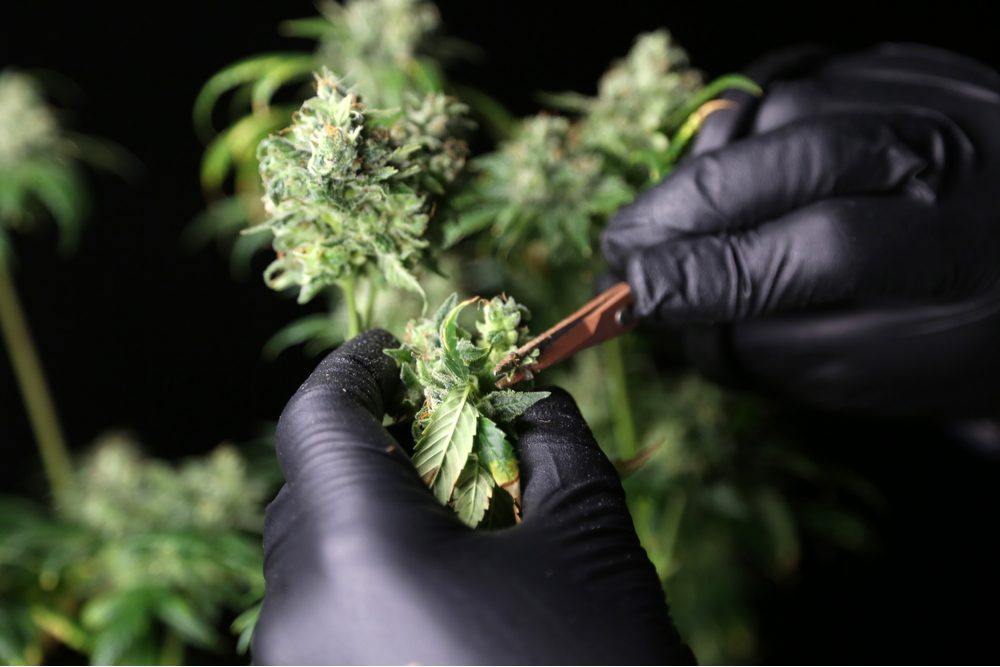If you’re comfortable with a change, finding a career in cannabis is easier everyday. Here’s why this could be your time to break in.
As the pandemic dries up and economies open, the cannabis industry is set to boom. The up-and-coming weed scene is poised to employ 414,000 Americans by end of 2021. For many enterprising workers out there, it sounds like prime time to get in on the ground floor of the Next Big Thing. But how, exactly, does one start a cannabis career?
The cannabis space is relatively new, and with that freshness comes possibility. It’s a niche industry, with its own set of rules, but right now there’s no old guard around to put up entrance barriers for excited newcomers.
The only trouble is that many, many people are vying to get a foot in the door. And, so far, there is simply no good roadmap for how to get started in cannabis. For those truly interested in a cannabis career, however, there are some measures you can take to stand apart from a crowd of eager entrepreneurs.
The Basics of a Cannabis Career
It’s important to get a few things out of the way. If you want a cannabis career, you need to be 21. There are laws around that sort of thing. Also, all the traditional rules of employment apply: Network like crazy, education matters, attitude is crucial, and don’t be too proud to start at the bottom. Be professional, and keep in mind that nobody wants to hire a typical stoner. Above all, do your research.

So, what differentiates landing a cannabis career from one in, say, pharmaceuticals? For one thing, there’s a shortage of talent in the green scene. The U.S. market for legal weed is going gangbusters; by 2025 it will have grown an estimated 122.5 percent to upwards of $24 billion. It will soon employ more people than American manufacturing.
But, that doesn’t mean the jobs are easy to get. There’s no greater need for expertise than in the early days of an industry. The best jobs require serious training. The better your educational qualifications, the higher up on the ladder you’ll start. If you want to be top dog of the grow house, you’ll need sterling biochemistry credentials combined with a bit of engineering know-how. For top cannabis careers, like a master extractor, the starting salary is six digits.
If you lack credentials, there are other ways to get a cannabis job that require more enthusiasm than experience. Lower-level agricultural jobs, like bud trimmers and harvesters, provide a lot of entry-level opportunities. And while these gigs may not pay the big bucks, these positions often provide opportunities to climb the green ladder.
Before you start thinking about a cannabis career, remember the industry is split three ways. There is the agricultural side, the business side, and auxiliary support.
Cannabis Careers: Agriculture
The agricultural side works directly with plants through breeding, harvesting, trimming, and cultivating. Of all the cannabis careers, agricultural jobs are the most subject to legalization laws. So, while there are plenty of trimmer positions in Colorado, if you’re based in North Carolina, you’re not likely to land one.
Also, the basic cultivation and trimming jobs are classified as unskilled labor. While many are not subject to the same seasonal layoffs as traditional agriculture positions, these usually require hard work in exchange for low pay. People who enjoy landscape management and botany can find a solid foothold in the industry through entry-level cultivating positions. And those in any position with enough brains and ambitions can rise to become managers and team leaders. The best of these jobs are based in California.

Higher-level agriculture cannabis careers also exist. Master growers and extractors manage the grow operations and strain production of entire companies. Because they create and ensure the quality of the final product (be it dried cannabis, CBD oil, or what have you) they need a lot of experience — and advanced degrees, usually. If you’re interested in attaining these positions, study botany, horticulture, or biochemistry and get experience working on hemp farms.
Other cannabis careers in agriculture are quality control testers and government inspectors. These jobs hold the most requirements for educational qualifications because they’re paid to run tests. Companies and government agencies alike employ QA testers to ensure that products are up to legal codes and correctly marketed.
Cannabis Careers: Business
Without agriculture, there would be no cannabis jobs. But business training is also an essential part of the cannabis space. Dispensary managers, budtenders, and edibles chefs are critical to the success of the weed industry.
Most of these careers are similar to their counterparts in other industries. Budtenders need good soft skills more than any other trait. It’s possible to get a budtender offer without formal training, but education in sales or sales experience always helps. Some serving careers also translate, as many budtenders earn tips and have repeat customers.
Dispensary managers need a bit of formal business education, although an MBA is not necessarily required. Many managers cut their teeth in retail, where they learned how to operate a business, train staff, take care of customers, handle inventory, make purchasing decisions, and keep on top of industry trends. If that sounds like a lot, it is. But good dispensary managers bring home big bucks, and the best get performance-based bonuses.
Other careers, like edibles chefs, are unique to the cannabis space. The best edibles chefs have formal training in culinary arts or high-level degrees in food science.
As a new industry, cannabis needs customers. So marketing and social media jobs are abundant and important. Digital marketing is key for connecting with customers in the modern economy. So those trained in social media strategy, digital ad buying, and targeted campaigns will find lucrative gigs — and great experience.
The newness of the market means there’s no proven way to get customers in the door. And cannabis is a multifaceted product. It’s at once a medication, a stress-reliever, a recreational hobby, and more. Marketers have opportunities galore to prove their mettle for upper management. Those who can bring in a new market segment with innovative methods are worth their weight in gold.

Cannabis Careers: Auxiliary
Weed companies need lawyers, accountants, graphic designers, receptionists, web designers, and janitors, too. If you have standard white-collar credentials and a passion for cannabis, there’s a good chance you can find a green job that matches your skill set. It’s best to look through special portals like Vangst that cater to the cannabis space, or directly through a specific company’s website.
If you’re having trouble getting in, start networking. It’s common sense, but it bears repeating: People hire people they know. If you know an old high school friend who works at a dispensary, re-connect with them. Attend cannabis trade shows with a stack of resumes and business cards. Network with shop owners, suppliers, and growers to see what skills they need.
Cannabis business is booming, but it’s picky. People who start now are likely to enjoy a rapid rise through the ranks as the industry grows, and experience in it is at a premium. Getting a good cannabis career now could mean setting yourself up for a great career helping people for decades to come.
In short, while we may be biased, it’s a good industry to work in. Get that resume shined up!





